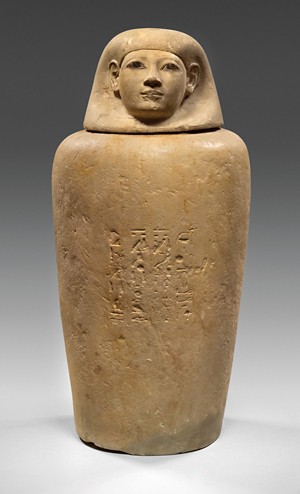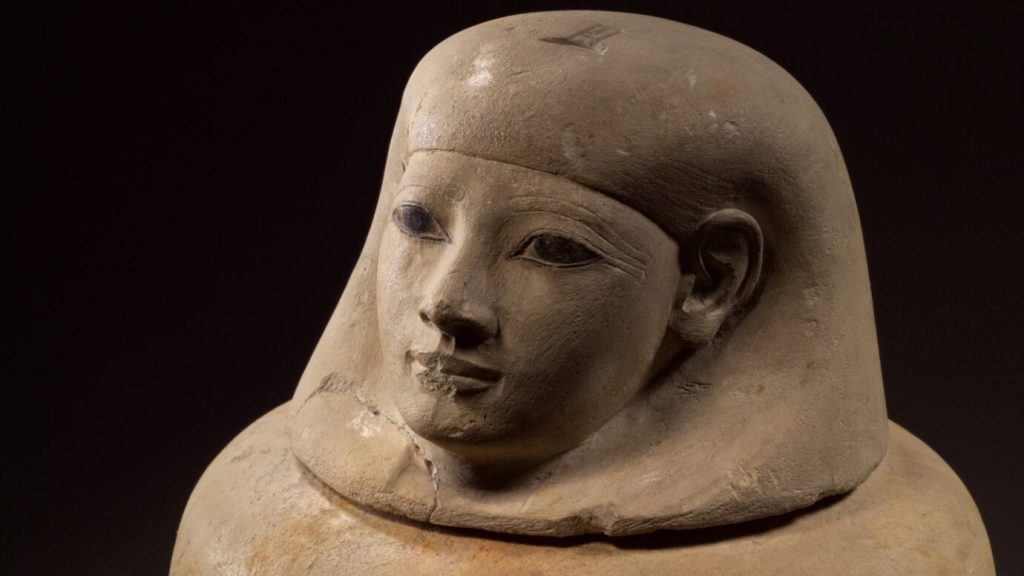The remains of a high-ranking woman named Senetnay were unearthed along with those of Ancient Egyptian royalty and nobility over a hundred years ago in the Valley of Kings.
The inscription on her canopic jar (the vases where they stored the deceased’s organs) however suggests that she was actually a wet nurse to King Amenhotep II of the 18th Dynasty and she was greatly revered by the king himself which explains why both their remains were stored close together.

A wet nurse (who breastfeeds babies and cares for them) was not the only type of nurse in Ancient Egypt’s advanced medical field, as there were dry nurses, midwives, male nurses as well as a separate hierarchy within physicians and clear distinction between different disciplines similar to that of modern times. According to a paper, The History of the Nursing Profession in Ancient Egyptian Society highlights that despite being discovered for a long time, the recent chemical analysis of the contents of the jar showed how expensive and rare some of the ingredients were. They did not only highlight Senetnay’s importance but also the reach of global trade in 1400 BCE with oils, wax, and other plant-based ingredients coming from as far away as South East Asia and different parts of the Mediterranean.
Even to this day, many in Egypt revere wet nurses, affectionately dubbing them “mothers in breastfeeding” and some earlier Islamic scholars forbade the marriage of two people who shared a wet nurse demonstrating the importance of this bond throughout the ages. Proof of the king’s adoration is demonstrated through the care and quality of the preservation of Senetnay’s remains which stayed strong even after 3,500 years.
WE SAID THIS: Don’t Miss…Discovery Of The Largest Ancient Egyptian Embalming Workshops Unearthed In Sakkara



